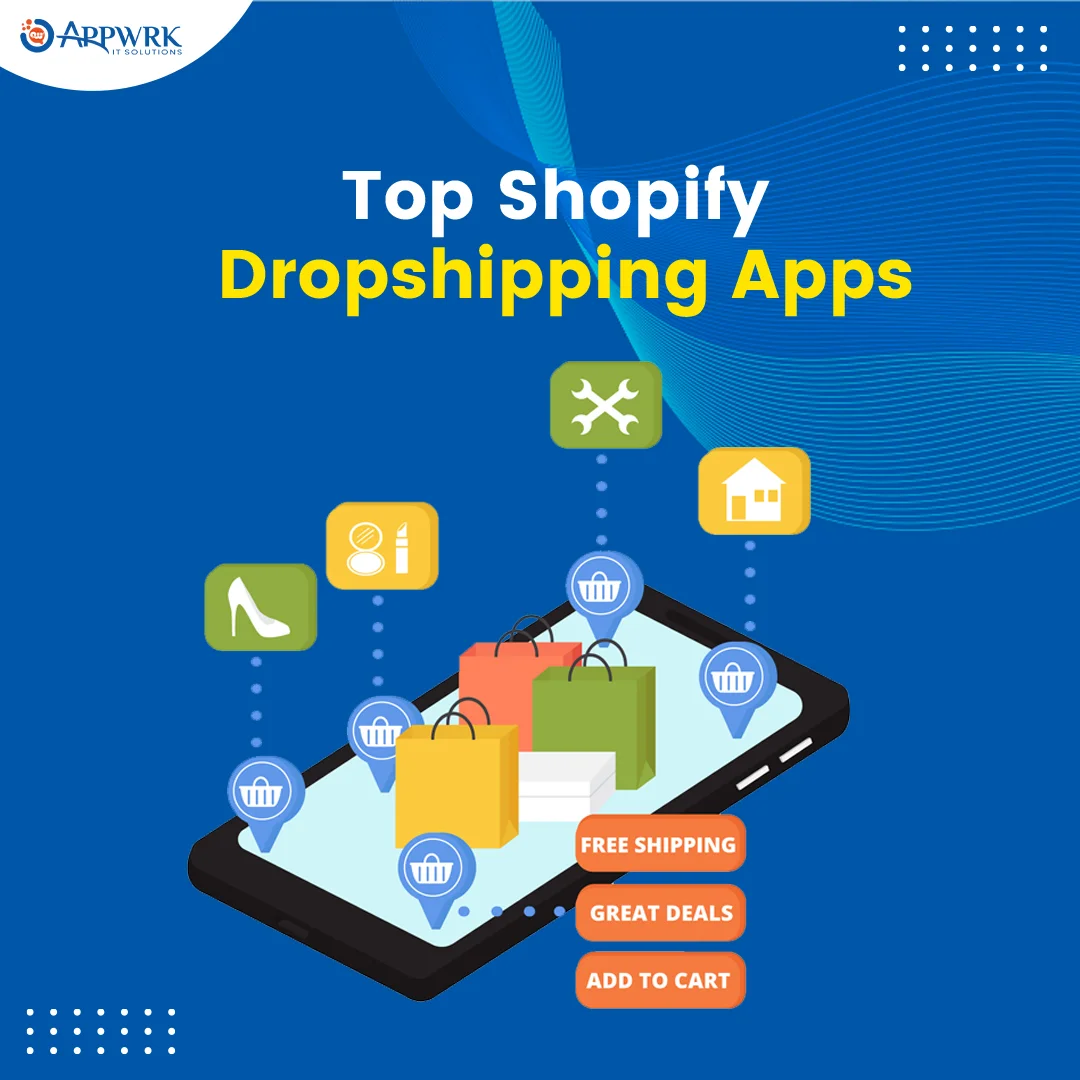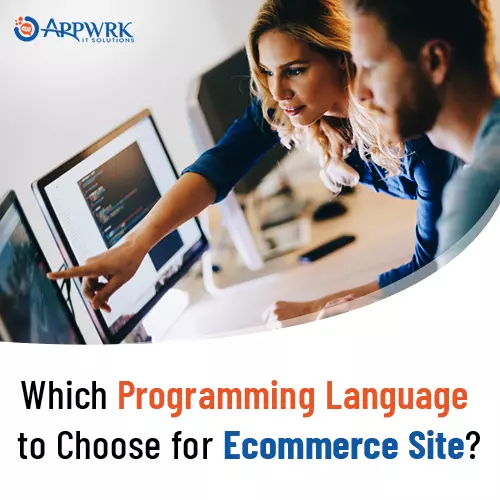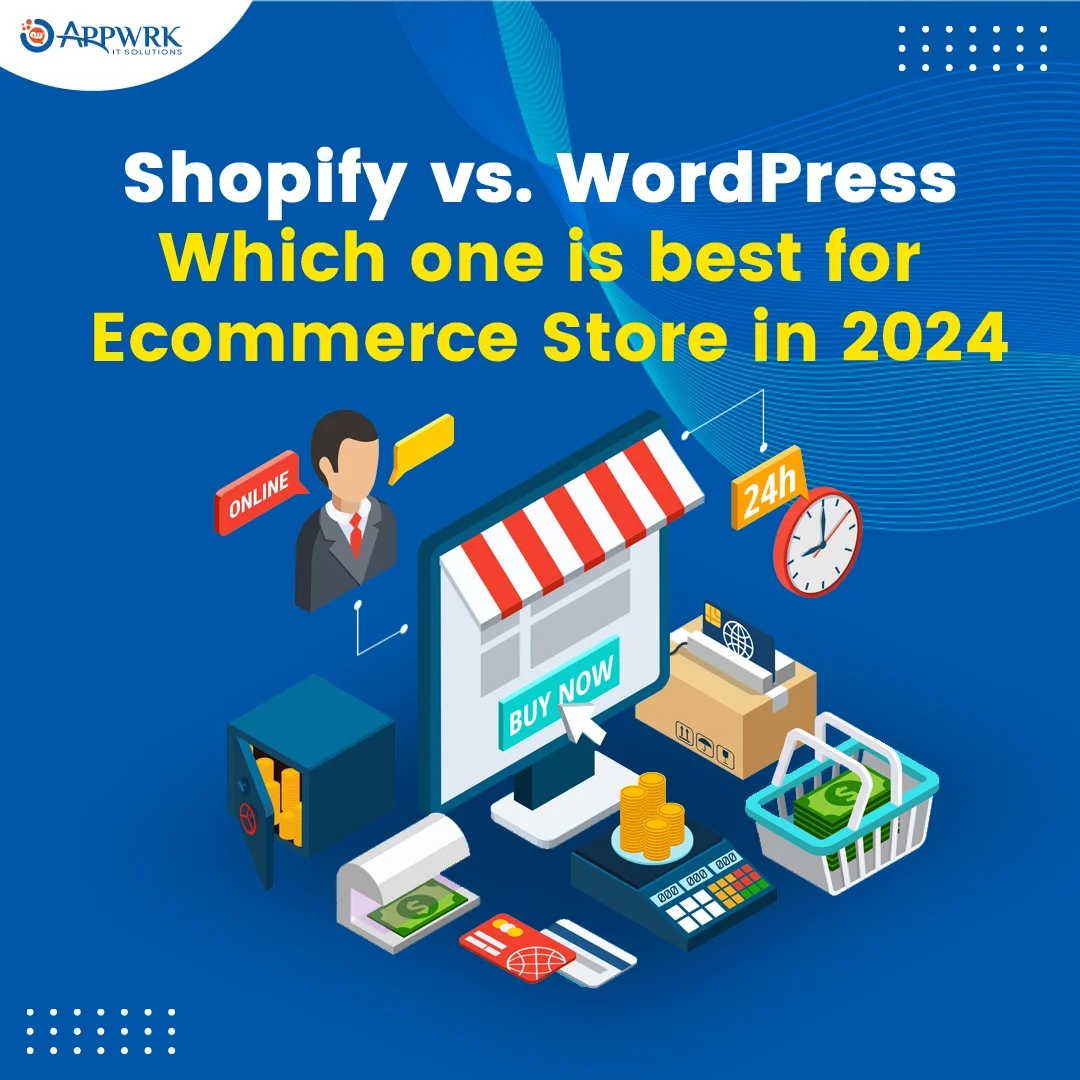GoDaddy vs Shopify – Which is Right For Your Business?
Do you need help seeing costly plans while building a limited online store within your tight budget, or are you looking to make an essential website with some features for free? Or you are looking to build a highly advanced E-commerce website. While searching, you must have encountered website-building platforms like GoDaddy and Shopify.
While GoDaddy can leverage you with an opportunity to build a large online store with limited features for as low as $29.99 per month, Shopify allows you to develop the online store for as low as $39 with numerous features and unlimited product listing options. GoDaddy is generally known for its domain name registration and web hosting options. GoDaddy has been providing free website builder features since the 1990s, which is known to few.
GoDaddy vs Shopify is comparison; hence, that is worthy enough for comparison. GoDaddy is undoubtedly cheaper, but Shopify provides more features when building an online store. GoDaddy’s new E-commerce plan supports large E-commerce businesses with unlimited products but limited E-commerce features.
Features like AI, ML, DL, AR, and VR are in the majority available with Shopify when we talk of Shopify vs GoDaddy, which provides advanced online store features like an AI mirror try-on option that can be integrated through a third-party app.
Let’s start comparing these two giants in the website-building market without adieu! (GoDaddy vs Shopify)
Table of contents
- Pricing Plans Comparison between GoDaddy vs Shopify
- GoDaddy vs Shopify: Plans with Unlimited Products
- GoDaddy vs Shopify – Customer Service and Support
- GoDaddy Website Builder
- What Shopify and GoDaddy Offer?
- Web hosting Provider GoDaddy vs Shopify
- Transaction fees – GoDaddy vs Shopify
- Marketing Tools and Features
- Create an online store and E-commerce plan
- Machine Learning, Deep Learning, and AI
- Advanced Online store features – GoDaddy vs Shopify
- Final Briefing for GoDaddy vs Shopify
- Conclusion
- FAQs About Shopify vs GoDaddy
Pricing Plans Comparison between GoDaddy vs Shopify
GoDaddy allows you to build all kinds of websites, and its most expensive plan ($29.99 per month billed annually) will enable you to make a website with a shopping cart facility to sell unlimited products. Though Shopify’s plans are mainly for online stores, it was built with e-commerce in mind, confirming that when we talk of GoDaddy e-commerce vs Shopify, Shopify is the clear winner as it provides advanced features. The briefing goes as follows:
| Focus | Godaddy Website Builder | Shopify Plans |
| Main Purpose |
Build all kinds of websites with the |
Mainly for online stores |
Free Plan
GoDaddy provides an essential webpage with the company’s branding and ads.
Shopify doesn’t have any free plan.
Free trial
- GoDaddy: They offers a free plan with basic features and branding.
- Shopify: a 14-day free trial with all features, and the credit card is not required.
Paid Plans
| Feature | Godaddy Website Builder | Shopify Plans |
| Basic Plan | Minimum $9.99/month | Shopify Lite ($9/month) |
| Features | * Free themes * Basic customization * Free SSL certificate * Responsive templates * Limited SEO tools * Limited storage * Online credit card processing fee: 2.3% plus 30 cents USD online * No transaction fee * Appointment Scheduling | * Free themes * Social media platforms selling * Not more than 2 products order management * Limited analytics * Options like Fraud protection 2.9% + 30 cents USD online * Transaction fee applies * Appointment scheduling through third-party apps |
| Standard Plan | Minimum $16.49/month | Shopify Basic ($29/month) |
| Features | * All Basic Plan features * comes with better customization options * Limited storage * Email marketing tools are available * 24/7 customer support * Online credit card processing fee: 2.3% plus 30 cents USD online * No transaction fee * Appointment Scheduling | * Unlimited products * Online store with shopping cart features * Discount codes * Abandoned cart recovery * Manual order creation * 2.9% + 30 cents USD online * Transaction fee applies * Appointment scheduling through third-party apps |
| Premium Plans (Price) | Starts at $27.99/month | Shopify ($79/month) |
| Features | * All Standard Plan features * SEO tools * tools for Social media marketing * Option for Membership sites * Limited storage * Online credit card processing fee: 2.3% plus 30 cents USD online * No transaction fee * Appointment Scheduling | * All Basic Shopify features *Gift cards * Inventory management * reports * Options for fraud analysis * 2.6% + 30 cents USD online * Transaction fee applies * Appointment scheduling through third-party apps |
| Advanced Plan (Enterprise) | $29.99 monthly (E-commerce Plan) | Shopify Plus (minimum $2,000/month) |
| Features | * All Premium Plan features * Priority support * Free domain * Sophisticated security features * supports high-volume stores through scalability * Automated sales tax calculation * Online credit card processing fee: 2.3% plus 30 cents USD online * No transaction fee * Appointment Scheduling | * All Shopify features * High-volume transaction processing * Customized solutions for enterprise businesses * Dedicated account manager * 2.4% + 30 cents USD online * Transaction fee * Appointment scheduling through third-party apps |
Additional Notes:
- While GoDaddy Website Builder pricing is based on the duration of the selected plan, which can be monthly or annual, the Shopify plans are mostly monthly. However, annual and biannual plans offer discounted pricing.
- Both offer more features and services, like domain registration, sales and marketing options, and email support, in return for the additional fee they charge.
Choosing the Right Plan:
- If you desire a simple website without E-commerce, GoDaddy’s free or basic plan is best for you. Frankly, comparisons like Shopify vs GoDaddy e-commerce only end with Shopify as a clear winner.
- If you want an online store, Shopify is the right option. It offers many features specific to online stores, such as abandoned cart recovery, integration with payment systems, inventory management, and discounted codes.
- If you require a high-volume store or desire enterprise-level requirements, Shopify Plus, with its custom pricing, better high transaction processing features, and dedicated account management, will be the best option for you. However, GoDaddy is a better option if you have a tight budget and can settle for limited features to sell unlimited products.
GoDaddy vs Shopify Enterprise-Level Options:
While GoDaddy offers plans for website building, it only provides explicit features for large-scale online stores. Moreover, they lack an offer for Shopify Plus to ensure better features and dedicated support through dedicated account managers for high-touch support. GoDaddy also needs advanced E-commerce features suitable for complex large enterprise stores and needs to provide dedicated account managers.
GoDaddy also provides a Shopify Plus-like enterprise-level option for selling unlimited products but only supports limited E-commerce features.
Additional Considerations:
- When we compare Shopify vs GoDaddy, GoDaddy charges no transaction fee, while Shopify charges unless you opt for Shopify payments.
- GoDaddy website builders are more user-friendly, while Shopify requires technical knowledge to perform its complex functionalities.
However, your demands and pocket size will decide your final choice. GoDaddy is suitable for essential and large-scale e-commerce websites that sell unlimited products with tight budgets and limited e-commerce features. Shopify Plus should be your choice if you need a large online store with advanced e-commerce features, enterprise-level support, and scalability.
GoDaddy vs Shopify: Plans with Unlimited Products
| Platform | Plan with Unlimited Products | Price (US Dollars/Month) | Additional Features |
| Godaddy Website Builder | The E-commerce plan provides selling unlimited products | $29.99 | * Options to sell unlimited products with limited E-commerce features for the E-commerce plan |
| Shopify | Shopify Basic and all higher tiers | Starts at $29/month | * Unlimited products * Online store with shopping cart features * Discount codes * Abandoned cart recovery * Manual order creation * 24/7 customer support |
Key Points:
- GoDaddy: It supports unlimited product selling through an E-commerce plan with limited E-commerce features.
- Shopify: All Shopify plans, including basic plans, support unlimited product selling and advanced E-commerce features.
Additional Considerations:
- Transaction Fees: No for GoDaddy and yes for Shopify but no in the case of Shopify payments.
- Other Features: Shopify is specifically for online stores, with options like inventory management, better reports, and app integration features.
GoDaddy vs Shopify – Customer Service and Support
Below are the details of Shopify and GoDaddy’s customer service/support.
Availability:
- GoDaddy: live chat and support 24/7. However, GoDaddy does not provide email support.
- Shopify: Shopify offers 24/7 support, live chat, email, social media, and forum support.
Focus:
- GoDaddy: They representatives are friendly, beneficial, and best for beginners.
- Shopify: Their support caters primarily to e-commerce functionality, which favors complex store requirements.
Overall:
- GoDaddy: This is the best for quick solutions and issues related to introductory websites and for those who prefer phone support.
- Shopify: best support for issues ranging from basic to the most complex e-commerce questions and technical queries related to online stores.
Some more facts:
- Complexity issue: If you’re a starter and have a primary store, GoDaddy’s support is what you require. For more complex requirements, Shopify’s customer support is more valuable.
- Communication preference: GoDaddy is a good option if you like phone support. Shopify will be a better choice for those who support email or a broader range of options.
GoDaddy Website Builder
GoDaddy website builder is free but has limited functionality, making it great for starting small businesses. Its E-commerce plan is good for E-commerce businesses that want to sell unlimited products but have tight budgets and are good with limited E-commerce features. Shopify website builder does not come for free and is good for all-size E-commerce businesses looking for advanced E-commerce features.
SSL certificate – GoDaddy vs Shopify
Here’s a table summarizing the key points:
| Feature | Godaddy Website Builder | Shopify |
| Free SSL Certificate | Included with all plans (limited options) | Included with all plans (basic certificate) |
| Automatic Activation | No | Yes |
| Custom SSL Certificate Options | No (except for Enterprise plans) | Yes (with higher plans) |
Easy to build Feature
While the GoDaddy website builder is more accessible, the Shopify website builder has its advantages, as it allows the installation of advanced e-commerce features through simple-to-learn processes.
What Shopify and GoDaddy Offer?
Below is a short comparison of Shopify and GoDaddy in a nutshell:
- Shopify: E-commerce powerhouse. Shopify is suitable for E-commerce stores rather than for basic websites.
- GoDaddy is an easy-to-use website builder. It is best for beginners and basic websites like blogs and portfolios. GoDaddy will also suit businesses wanting to sell unlimited products on a tight budget and is good with limited E-commerce features.
Web hosting Provider GoDaddy vs Shopify
While comparing GoDaddy vs Shopify, the conclusion is straightforward: GoDaddy and Shopify are both well known, but they offer website needs that are different from each other. Below is the comparison for web hosting:
Focus
- GoDaddy: GoDaddy is also a well-known web hosting provider. They offer an extended range of hosting plans for various website types, including shared hosting, virtual private server (VPS), and dedicated hosting.
- Shopify is a widely acclaimed E-commerce platform. While it serves web hosting, it’s chiefly a platform for E-commerce online stores.
Features
- GoDaddy: email accounts, databases, and security certificates. You will require additional plugins for e-commerce functionality.
- Shopify: Everything related to the online store, such as product and order management, an online shopping cart, a payment gateway, and sales and marketing tools.
Transaction fees – GoDaddy vs Shopify
- Shopify: Charges transaction fees unless you opt for Shopify payments and offers 100s of payment gateways.
- GoDaddy: No transaction fees, but offers only a few payment gateways.
Shopify payments
This option is available with Shopify but not GoDaddy. It provides an advantage for Shopify when we talk of GoDaddy vs Shopify, as it covers a vast spectrum of payments and ensures zero transaction fees. The inclusion of online Shopify payments has made Shopify more efficient for all levels of E-commerce business when businesses opt for advanced features and want to build a complex store.
Marketing Tools and Features
- Shopify: It has built-in marketing tools such as email marketing, abandoned cart recovery, and social media integration. Integration with numerous marketing apps can achieve various advanced sales and marketing features.
- GoDaddy: It has fewer built-in marketing tools. It can be integrated with third-party marketing tools, but they are limited in number.
Small businesses Support
- Shopify: Strong for online stores with advanced features.
- GoDaddy: More economical for basic websites and stores with limited features.
Inventory Location
The details of inventory locations for Shopify are as follows:
| Shopify Plan | Maximum Inventory Locations |
| Shopify Lite | 2 |
| Basic Shopify | 4 |
| Shopify | 5 |
| Advanced Shopify | 8 |
| Shopify Plus | Unlimited |
Regarding GoDaddy, they don’t support inventory management, and we have to integrate it with third-party management for inventory management.
Number of Staffs allowed
| Platform | Plan | Maximum Staff Accounts |
| Shopify | Lite | 2 |
| Basic Shopify | 2 | |
| Shopify | 5 | |
| Advanced Shopify | Unlimited | |
| Shopify Plus | Unlimited | |
| GoDaddy | Website Building Plans | Limited; may require third-party integration but no built-in option |
| E-commerce Plans (Essentials, Deluxe, and Unlimited) | Integrations with third-party apps for small teams |
Drag and drop editor
When we talk of GoDaddy vs Shopify, both offer a drag-and-drop editor. While GoDaddy provides basic website-building features, Shopify favors e-commerce store development and management.
Create an online store and E-commerce plan
GoDaddy provides minimum functionalities and can support large E-commerce businesses that want to sell unlimited features and are good with that. In contrast, Shopify offers a long list of features and functionalities that favor enterprises of all sizes and at any level of an e-commerce plan.
Machine Learning, Deep Learning, and AI
Shopify and GoDaddy approach machine learning, deep learning, and AI differently:
Shopify
Shopify uses AI more to support e-commerce requirements for customers and store owners. Below are a few examples:
- Customer-facing AI:
- Product recommendations: Shopify uses machine learning to recommend products to consumers based on browsing and purchasing history.
- Chatbots: Shopify allows chatbots to answer customers’ questions and provide them with automated support.
- Store owner-facing AI:
- Fraud detection: Shopify uses AI to detect frauds like fraudulent orders.
- Inventory management: Shopify uses AI to analyze data from the sales department and recommends what’s about to go out of stock in inventories to prevent situations like stockouts.
GoDaddy
GoDaddy applies AI for essential website management as well as tackles security issues:
- Website security: GoDaddy utilizes AI to detect and prevent malicious attacks on the websites hosted on its platform.
- Website optimization: Some GoDaddy plans to use AI to suggest website improvements, such as reducing load speed.
While discussing GoDaddy vs Shopify, Shopify uses AI to enhance the e-commerce experience for store owners and customers. In contrast, GoDaddy uses AI for basic website management tasks.
Below are some of the factors to consider:
- Your requirements: If you require advanced AI features for your E-commerce platform, Shopify is the best.
- Technical know-how: If you are not technically sound, then Shopify’s AI-powered tools can make things easier as they will cover such technical requirements through automation.
Advanced Online store features – GoDaddy vs Shopify
When we talk of GoDaddy vs Shopify for advanced online store features, Shopify can entertain you with more advanced features for your online store than GoDaddy when we speak about AI-powered features such as virtual try-on. We are describing the options below:
Shopify
You can integrate Shopify with numerous third-party apps that cater to virtual try-on features with the help of AI and AR. These apps will use your smartphone camera to stimulate your appearance with the clothes you want to buy. Some of the popular apps in this category are as follows:
- PerfectCorp: This is good for clothing, cosmetics, and glasses, as well as for implementing an AI-powered try-on feature.
- YouCam Makeup: This is good for implementing virtual try-on features related to hairstyles and makeup.
- Vertebrae: This is a good app for implementing AR try-on options for sneakers and shows.
The app uses machine learning as well as computer vision to analyze the body shape and dimensions. Then, it overlays the product image to create a simulation that almost looks real. Thus, it can significantly increase conversion rates for businesses.
GoDaddy
GoDaddy does not support built-in virtual try-on functionality or direct integrations with apps like Shopify. Its app store offers some AR/VR experiences but is separate from E-commerce.
Overall
Shopify is the clear winner regarding AR/VR features, which GoDaddy needs to include.
Final Briefing for GoDaddy vs Shopify
| Attribute | Godaddy Website Builder | Shopify Plans |
| Focus | Website Creation | E-commerce |
| Products | Unlimited (E-commerce Plan – $29.99/month) | Unlimited (all plans except Shopify Lite) |
| Product Limits | Up to 2 Products (Shopify Lite) | |
| Themes | Free | Free & Paid |
| Customization | Limited | More Options (increases with plan tier) |
| SEO/Marketing | Limited | Basic to Most Advanced (increases with plan tier) |
| Support | Standard | Limited to Dedicated Account Manager (increases with plan tier) |
| Transaction Fees | None (E-commerce Plan) | No transaction fees (except for plans not using Shopify Payments) |
| Credit Card Processing Fees | Varies (depends on the chosen payment processor) | 2.4% to 2.9% + USD 0.30 (except for plans using Shopify Payments) |
| Appointment Scheduling | No (requires third-party apps) | No (requires third-party apps) |
| Additional Features | Godaddy Website Builder | Shopify Plans |
| Social Media Selling | – | Included (all plans) |
| Inventory Management | – | Included (all plans except Shopify Lite) |
| Discount Codes & Abandoned Cart Recovery | – | Included (all plans except Shopify Lite) |
| Membership Sites | – | Available (Shopify plan and above) |
| High-Volume Transaction Processing & Scalability | – | Available (Shopify Plus) |
| Sophisticated Security Features | – | Available (Shopify Plus) |
Conclusion
In summary, GoDaddy and Shopify each offer unique strengths in website building and e-commerce. GoDaddy excels in affordability and simplicity, making it ideal for beginners and small businesses. On the other hand, Shopify’s focus on e-commerce provides advanced features, scalability, and dedicated support, making it the preferred choice for online stores of all sizes. If you’re looking to leverage the strengths of these platforms effectively, APPWRK can provide tailored guidance and expertise to help you make informed decisions and optimize your online presence. Get in touch with us today to discover how we can help your business thrive in the digital landscape.
FAQs About Shopify vs GoDaddy
- Is Godaddy or Shopify cheaper?
Godaddy offers businesses and individuals a free plan with limited features, while Shopify provides a 14-day free trial. Pricing plans vary depending on features, but Shopify offers more features for online stores at a higher cost.
- Which platform is easier to use when we discuss GoDaddy vs shopify?
Godaddy’s website builder is known for being more straightforward, while Shopify offers more flexibility but has a steeper learning curve, especially for advanced features.
- Can I sell unlimited products with Godaddy?
Yes, you can sell unlimited products with Godaddy’s E-commerce plan, but you can only use limited E-commerce features. In the case of Shopify, even the Basic plan allows unlimited products with advanced E-commerce features.
- Does Shopify have better customer support than GoDaddy vs Shopify?
Both platforms offer 24/7 phone and chat support. Shopify provides shorter wait times and dedicated account managers for higher-tier plans.
- Do I need an SSL certificate?
Yes, an SSL certificate is essential for securing your website. Both Godaddy and Shopify offer free essential SSL certificates with their plans.
- Is Shopify better for marketing?
Shopify offers more built-in marketing tools (email marketing, abandoned cart recovery) and integrates with various marketing apps.
- Can I create an advanced online store with Godaddy?
GoDaddy offers limited E-commerce features. Shopify provides various functionalities for building advanced online stores, including features like AR/VR integrations and AI tools.
About The Author






 Free Quote
Free Quote
















































